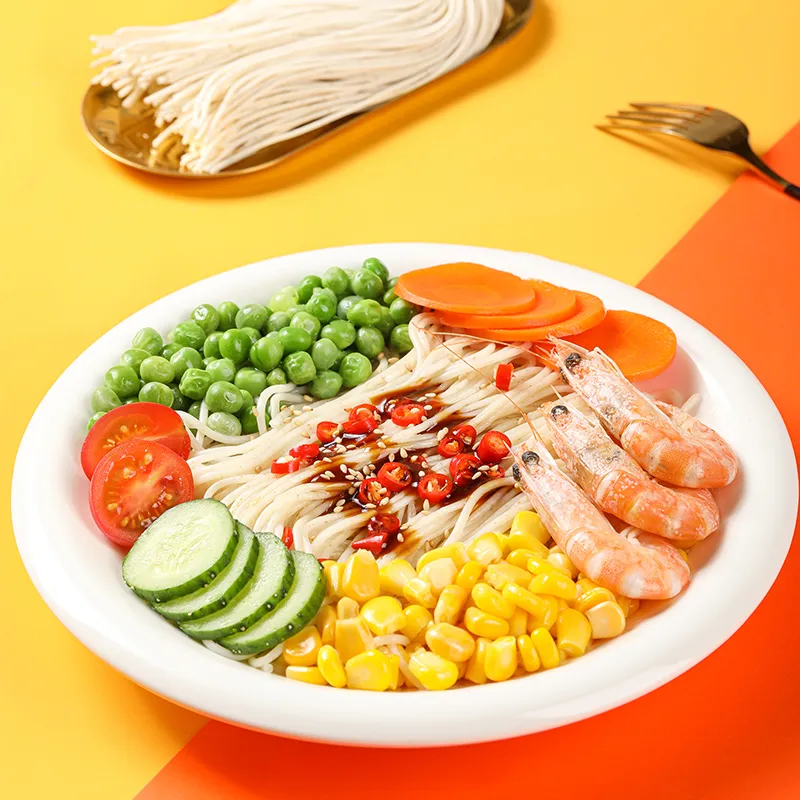Organic Buckwheat Soba Noodles for Healthy Eating and Culinary Creativity
Exploring the Benefits of Organic Buckwheat Soba Noodles
In recent years, the culinary world has seen a remarkable surge in the popularity of healthy and sustainable food options. Among these, organic buckwheat soba noodles have emerged as a star ingredient, capturing the hearts (and stomachs) of health-conscious diners and adventurous food lovers alike. Let’s delve into the reasons why these noodles are so beloved, their health benefits, and how to incorporate them into your meals.
What Are Buckwheat Soba Noodles?
Soba noodles are traditional Japanese noodles made from buckwheat flour and water. Unlike regular wheat noodles, buckwheat is a gluten-free pseudocereal, making it an excellent alternative for individuals with gluten sensitivities or celiac disease. When we talk about organic buckwheat soba noodles, we refer to those made from buckwheat grown without the use of synthetic fertilizers or pesticides, promoting environmental sustainability.
Nutritional Benefits
One of the standout features of organic buckwheat soba noodles is their impressive nutritional profile. Buckwheat is a rich source of high-quality protein, containing all nine essential amino acids that are crucial for the body's repair and maintenance. Furthermore, they are loaded with dietary fiber, which aids in digestion and helps maintain steady blood sugar levels.
The noodles also boast an array of vitamins and minerals, including B vitamins, magnesium, manganese, and phosphorus. These nutrients are vital for energy production, bone health, and overall bodily function. Additionally, buckwheat is known for its antioxidant properties, helping combat oxidative stress and inflammation in the body.
Heart Health
organic buckwheat soba noodles

Incorporating organic buckwheat soba noodles into your diet can also benefit heart health. Buckwheat has been linked to lower cholesterol levels and improved cardiovascular function. The presence of rutin, a powerful antioxidant found in buckwheat, is believed to strengthen blood vessels and improve circulation. Regular consumption of these noodles can help mitigate the risk of heart disease, making them an ideal choice for a heart-healthy diet.
Versatility in the Kitchen
One of the most appealing aspects of organic buckwheat soba noodles is their versatility. They can be enjoyed in a variety of dishes, from warm soups to cold salads, making them suitable for any season. Traditional Japanese cuisine often features soba noodles in dishes like zaru soba (cold noodles served with a dipping sauce) or kake soba (hot noodle soup).
For a contemporary twist, try tossing cooked soba noodles with seasonal vegetables, a drizzle of sesame oil, and a sprinkle of sesame seeds for a refreshing salad. You can also use them as a base for stir-fries or mix them into broths with proteins like tofu, shrimp, or chicken for a wholesome meal.
Sustainable Choice
Choosing organic buckwheat soba noodles is not only beneficial for personal health but also for the planet. Organic farming practices prioritize environmental sustainability, avoiding synthetic chemicals and promoting biodiversity. By opting for organic products, consumers are supporting farmers who are committed to sustainable agriculture and reducing their carbon footprint.
Conclusion
Organic buckwheat soba noodles are more than just a trendy ingredient; they embody a nutritious, versatile, and sustainable choice for those looking to enhance their diet. With their rich array of health benefits, including being high in protein and fiber, heart-healthy properties, and a range of vitamins and minerals, these noodles offer an easy way to nourish your body. Whether you're cooking a classic soba dish or exploring new culinary creations, incorporating organic buckwheat soba noodles into your meals is a step towards healthier eating and environmental responsibility. So next time you’re at the grocery store, consider adding a pack of these delightful noodles to your cart and experience the flavors and benefits they have to offer.
-
Unleash Your Inner Chef with Delectable Italian Pasta CreationsNewsAug.01,2025
-
Savor Health and Flavor: Irresistible Soba Noodles for Sale Await!NewsAug.01,2025
-
Nourish Your Body with Premium Organic Ramen - A Culinary Delight AwaitsNewsAug.01,2025
-
Elevate Your Dishes with Our Exquisite Kinds of Egg NoodlesNewsAug.01,2025
-
Dive into Flavorful Convenience with Our Ramen OfferingsNewsAug.01,2025
-
Discover Exquisite Types of Naengmyeon and Chilled Soba NoodlesNewsAug.01,2025
-
Is Whole Wheat Pasta Healthy?NewsMay.30,2025
Browse qua the following product new the we

















































































































